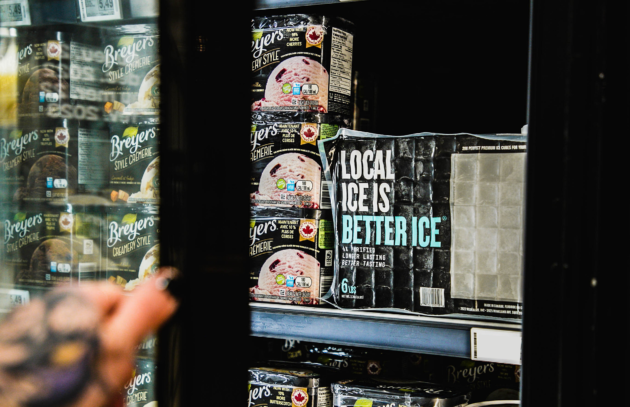
World’s first autonomous micro-factory from Relocalize gets funding boost from CFIN
By Monica Ferguson
Automation Food In Canada Packaging Processing autonomous CFIN Funding micro-factory Relocalize Photo: Relocalize.
Photo: Relocalize. Earlier this year, the Canadian Food Innovation Network (CFIN) invested $1.1 million into five projects, through the organization’s FoodTech Next Program to help early stage companies pilot their innovation in operational food sector environments.
Decarbonization company Relocalize received $246,618 in funding. With the motto of “thinking big by being small,” Relocalize’s autonomous micro-factories make the food supply chain more sustainable.
The company will be using the funding to pilot the world’s first autonomous micro-factory for food and beverage at their partner’s facility in Florida, in partnership with Southeastern Grocers, the parent company of Winn-Dixie and Fresco y Mas stores.
Relocalize will produce packaged ice hyper-locally on-demand at their distribution centre. As part of the pilot phase, the system will produce ice that will be initially available at two stores in Jacksonville. Since the micro-factory is located at the distribution centre, the product only has a one-step journey from point of distribution to the customer or store.
“We have developed autonomous micro-factories that do everything a large factory can, but they are miniature so they can be placed hyper locally,” said Wayne McIntyre, CEO, Relocalize. “Since these products are made hyper locally, there is no longer a need for trucks to travel long distances.”
One of the biggest challenges in food sustainability is long supply chains that include many trucks and long-distance travel.
McIntyre explained his micro-factories can make and process the product, create the required packaging as well package the product, then palletize and store it in a food safe environment, all without the need for people.
Ultimately, these micro-factories, McIntryre said, can reduce product costs by up to 30 per cent, while eliminating up to 90 per cent of transportation CO2.
“We started with packaged ice because ice can be quite hard to manufacture. It is a heavy and logistics intense product. Only one ice factory serves the entire province of Quebec. Ice is travelling long distances on trucks, and putting water on trucks in my mind is a really bad idea when it is available in every tap in every building in North America,” said McIntyre.
Fun fact, Relocalize’s filtered Better Ice comes in cubed form and is sealed in airtight packaging, which improves the taste of the product. The company has started with micro-producing ice, with plans to enter the beverage sector next.
Print this page